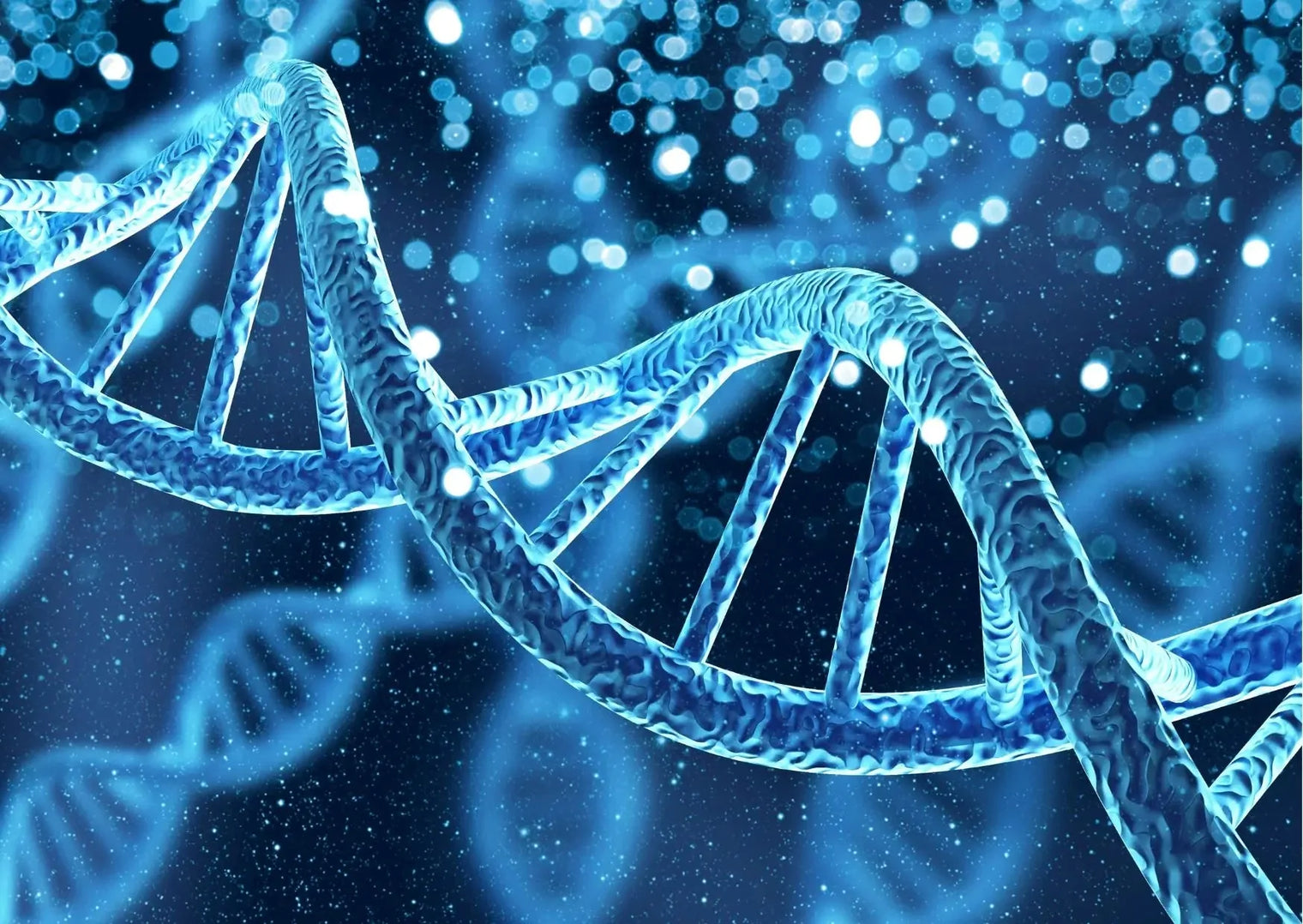
How do your genetics influence your menopause experience?
Menopause is a significant phase in a woman's life, often accompanied by a variety of symptoms and experiences that can vary greatly from one individual to another. One of the lesser-known factors that can influence this experience is genetics. Understanding the role of genetics in menopause can empower women to make informed decisions about their health and well being during this transition.
The power of nutrigenomics in menopause
Nutrigenomics is the study of how our genes interact with our diet and lifestyle, and it's particularly relevant to menopause. Our genetic makeup doesn't seal our fate; instead, it provides a blueprint that can be modified by our environment, including the foods we eat and our lifestyle choices. This means that while we can't change our genes, we can influence how they are expressed, effectively turning certain genes "on" or "off" to our advantage.
The role of progesterone and oestrogen
Two key hormones that are affected during menopause are progesterone and oestrogen. Genetic testing can reveal how efficiently your body processes these hormones. For example, certain genes are responsible for converting progesterone into a calming neurosteroid in the brain, which can affect anxiety levels. Similarly, genes involved in the synthesis and metabolism of oestrogen can influence how your body responds to this hormone during menopause.
Personalised nutrition and lifestyle changes
By understanding your genetic predispositions, you can tailor your diet and lifestyle to support your hormonal health. For instance, if genetic testing shows that you have a variation that affects how you process progesterone, you might benefit from increasing your intake of vitamin B3, which supports this pathway. Conversely, if you have a genetic variation that makes you less responsive to the calming effects of certain hormones, incorporating herbs like rosemary and lemon balm into your diet might be beneficial.
Menopause treatment: one size does not fit all
The British Menopause Society acknowledges that menopause treatment should be individualised, taking into account personal and family medical history, symptoms, and preferences. Genetic testing adds another layer to this personalised approach, allowing for more tailored recommendations that go beyond the "one size fits all" model often seen in menopause treatment.
Hormone replacement therapy (HRT) and genetics
For those considering or currently on HRT, genetic testing can provide insights into how your body might metabolise and respond to supplemental hormones. Understanding your genetic makeup can help you and your healthcare provider make more informed decisions about HRT, potentially reducing the risk of adverse effects and improving the treatment's efficacy.
The importance of professional guidance
While genetic testing can offer valuable insights, it's crucial to work with a healthcare professional who can help interpret the results and provide recommendations based on your unique genetic profile. A practitioner can guide you through the nuances of nutrigenomics and ensure that you're making the most informed choices for your health.
Conclusion
Genetics play a significant role in how women experience menopause, but with the advancements in nutrigenomics, it's possible to use this information to your advantage. By understanding your genetic predispositions, you can make targeted changes to your diet and lifestyle that support your hormonal health, potentially leading to a more comfortable menopause experience. Remember, knowledge is power, and in the case of menopause, it can be the key to a better transition.
If want to explore your DNA report we have negotiated a great offer with the LifecodeGX team - you can get a full menopause DNA Package RRP: £649.00 for £499 with code TBM at the checkout which includes
Lifecode Gx DNA test kit
Lifecode Gx Nutrient Core Report
Lifecode Gx Hormones Report
30 minute practitioner appointment
Understanding your genes enables you to make informed choices to personalise nutrition, lifestyle and other therapeutic approaches to mitigate risks and symptoms - find out more here.



